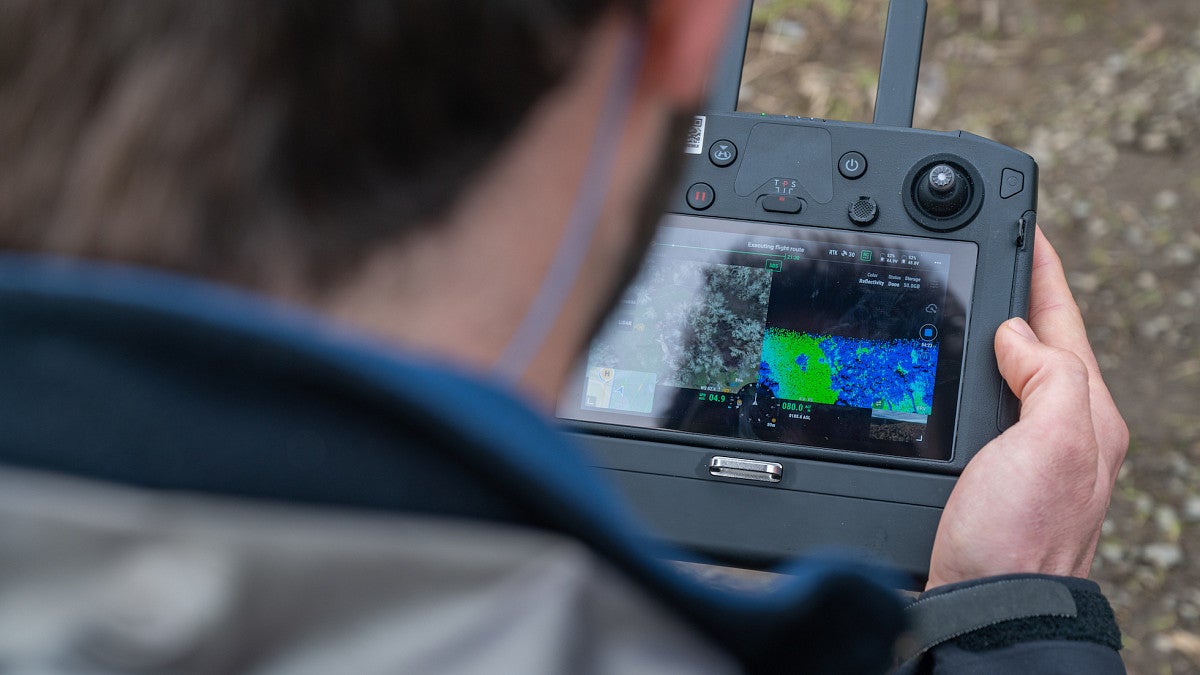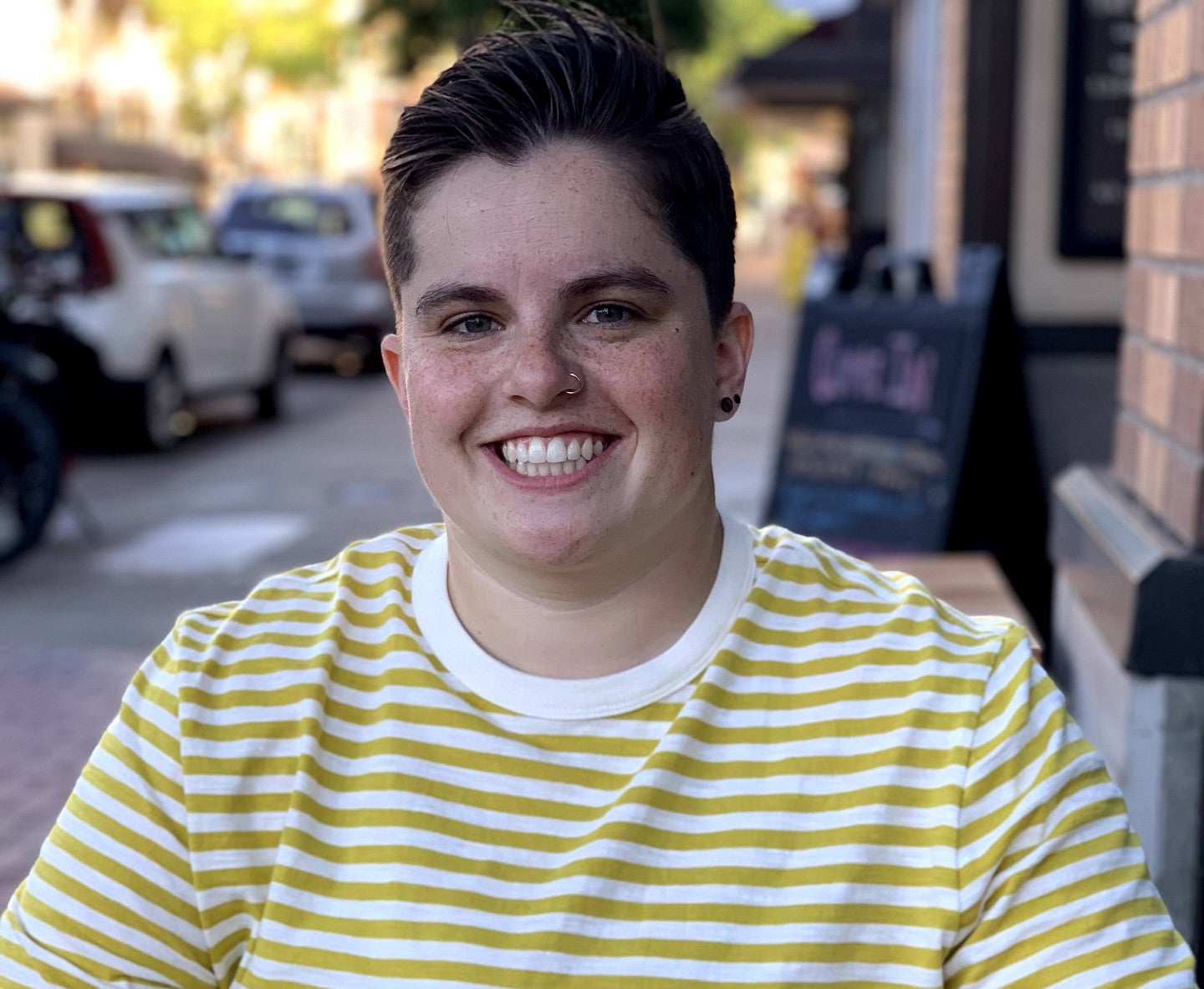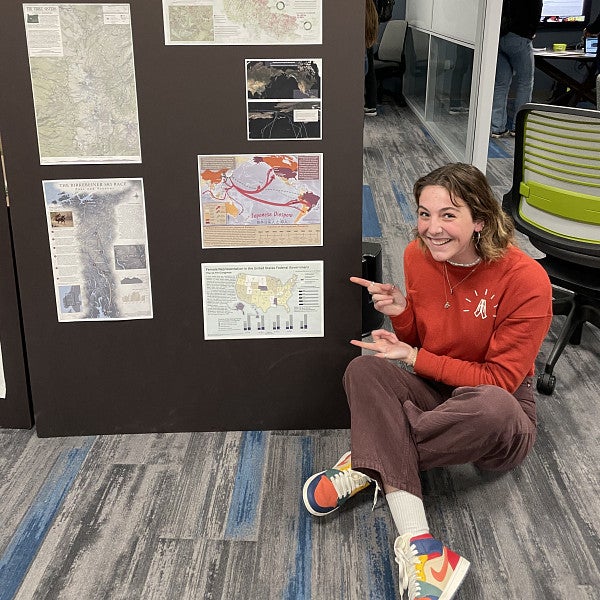
Studying geography is a great starting point for students who want to make a difference in the world. Our majors often go on to careers in which they develop solutions to some of modern society’s most pressing problems, such as climate change, natural disasters, overpopulation, urban expansion, and multicultural integration. Our alumni have launched successful careers in:
- Environmental Systems
- Economy, Environment & Sustainability
- Culture, Politics & Place
- Water Science & Policy
- Geographic Information Science
Why study Geography? Read about examples of career paths and actual alumni jobs.

Uncovering a Passion for Data Visualization
“The faculty throughout the Geography Department have helped enable my discovery and passion for sharing data-driven insights in visual, easy-to-understand ways, especially through cartography and web mapping. Notable highlights include the invaluable technical and transferable skills I’ve gained from mentors throughout my coursework and hands-on experience. This has opened many doors, made me a competitive applicant, and increased my self-confidence as I navigate my career search in advertising data visualization.”
—Chloe Leftwich, Spatial Data Science and Technology major, '23
Careers in Environmental Systems
These courses focus on developing skills in understanding the biological, climatological, and geomorphic processes that influence environments and landforms around the world. A spatial perspective will allow you to understand how these processes play out in different places, and specifically how long-term processes, including climate change, erosion, and species dispersal, shape the environments and resources that humans rely upon. Further, a spatial perspective focuses on understanding how global processes, including climate change and natural disasters, can influence local environments, and vice-versa. Physical geographers also rely on developing skills with remote sensing, Geographic Information Systems, and spatial modeling, which are highly valuable skills in today’s economy.
More specifically, people with a focus in environmental systems might look for jobs that look at environmental change in the context of the modern world, including:
- Design plans to restore river systems
- Conduct field surveys of environmental change
- Develop plans for potential natural disasters
- Provide policy guidance for agricultural insurance programs
- Develop climate action plans for cities
Example job titles:
- Resource Manager
- Environmental Field Technician
- Restoration Ecologist
- Hazard Planner
- Hydrologist
- Climatologist
- Meteorologist
- Land Use Planner
- Agricultural Planner
- Atmospheric Scientist
Careers in Economy, Environment & Sustainability
These courses focus on developing skills in understanding the many interactions between humans and the environment. A spatial perspective will allow you to understand how these processes play out in different places, and specifically how policies, economies, social systems and local environments influence how these processes evolve. Further, a spatial perspective focuses on understanding how global processes, actors, and networks can influence particular environments, and vice-versa.
More specifically, people with a focus in economy, environment and sustainability might look for jobs that look at how people use the environment, including:
- Researching laws and policies that guide environmental use
- Coordinating different stakeholders (indigenous people, businesses, government, etc.) in use of a resource (such as water)
- Helping to design or map areas to balance resource use with other interests
- Working with marginalized communities to map their resources
- Helping to plan transportation systems that least impact the natural environment
- Advocating on behalf of the environment in political realm
- Developing plans for tsunami inundation zones, floodplains, or places at risk of sea level rise
- Developing outdoor educational activities for school kids
Example job titles:
- Environmental Planner
- Natural Resource or Environmental Technician
- Outdoor Recreation Leader
- Hazard Mapper
- Environmental Development Consultant
- Land Economist
- Transportation Planner
- Land Use Planner
- Environmental Analyst
- Water Coordinator
- Land Surveyor
- Utility Vegetation Program Manager
- Urban farm manager
- Watershed Council Coordinator
- Sustainability Coordinator
- Fair Trade Coordinator
Careers in Geographic Information Science
These courses focus on developing skills in spatial analysis and visualization that can be applied in any number of geographic and situational contexts; from mapping tsunami inundation zones, the spread of invasive species, impacts of climate change, to comparisons of socio-economic indications of urban residents. Geographic Information Science courses provides you with highly desirable skills in today’s economy, from spatial analysis with GIS software, to creating and designing effective visual products (such as maps), to remote sensing to understand changes on the earth’s surface.
More specifically, people with a focus in geographic information science might look for jobs that require spatial perspective and analysis, including:
- Hazard mapping
- Managing emergency management databases
- Developing models for climate change
- Creating floodplain maps for insurance or government use
- Creating and maintaining databases for utility companies
- Conducting analysis for best places for a business to expand
- Developing suitability analyses for development
Example job titles:
- GIS Technician/ Specialist/ Developer
- Programmer
- Web Cartographer
- Facility Management Specialist
- Spatial Data Analyst
- Electrical Distribution Designer
- Risks Management Services Consultant
- Land Survey Technician
- Transportation Planner

Using GIS Skills as a QA Engineer
“UO Geography provided me with the opportunity to work on my professional skills before even leaving the classroom. My time in the program, as well as working in the InfoGraphics Lab, allowed me to go out into the real world with the confidence to advocate and negotiate for myself. I may not be in a 'traditional' GIS role, but I use my GIS knowledge every day to test 3D analytics.”
—Josie Imrie, Geography major, '18, QA engineer at Matterport
Careers in Culture, Politics & Place
These courses focus on developing skills in understanding the diverse social, political, and economic processes that influence people and places. A spatial perspective will allow you to understand how these processes play out in different places, and specifically how policies, economies and social systems influence people, power, and landscapes. Further, a spatial perspective focuses on understanding how global processes, actors, and networks can influence particular places, and vice-versa.
More specifically, people with a focus in culture, politics and place might look for jobs that look at how people interact and understand their societies, including:
- Researching suitability of locations for businesses or real estate developers
- Assisting people with travel plans
- Providing expertise in place-specific cultural practices and how to preserve them with dignity
- Working with community stakeholders to envision their futures
- Working with communities impacted or displaced by disasters or conflicts
- Providing cultural awareness training to businesses and government offices
Example job titles:
- Marketing Director
- Travel Agent
- Real Estate Agent
- Cultural or Historical Preservationist
- Research Consultant
- Regional Analyst
- Foreign Affairs Officer
- Community Development Specialist
- Human Capital Analyst
- Disaster Program Manager
- Extension Coordinator
- School Garden Coordinator
- Housing Coordinator
- Refugee Settlement Coordinator
Careers in Water Science & Policy
These courses focus on developing skills in understanding the ecological, geomorphic, political and economic processes that influence how rivers are used, managed, and disputed. A spatial perspective on water will allow you to understand how these processes play out in different places and under different river ecologies and management regimes. You will develop an understanding of multiple concepts from how land use can affect sediment transport and salmon survival to the impacts of dams on rivers, especially in the light of a movement to remove dams from rivers throughout the US West. You will also develop an understanding of how governance systems influence how people use (and abuse) water both in the US and abroad, and engage in a critical look at how water, a resource all people rely upon, is manipulated by economic systems, development, and international relations.
More specifically, people with a focus in water science and policy might look for jobs that look at river systems or development in both national and international contexts, including:
- Designing plans to restore river systems
- Managing state (or city) water programs
- Mediating between stakeholder groups utilizing water resources
- Developing plans for water disasters, such as flooding or oil spills
- Water quality monitoring
- Working for a development agency on encouraging local water systems
- Researching culturally and socially appropriate sanitation practices
- Conducting feasibility studies for proposed water development projects
Example job titles:
- Water Programs Manager
- Restoration Ecologist
- Hydrologist
- Flood Control Planner
- Oil Spill Contingency Plan Compliance Specialist
- Water Resource Specialist
- Project Manager for international projects
- Infrastructure Advisor

Developing Leadership Skills
“What I have valued most so far in my career is that UO's faculty and staff taught me the power of good leadership. They helped me not only develop this quality within myself, but how to recognize it within the workplace! When your team creates an environment where you can grow and reach the goals that you set for yourself professionally, being a member of the workforce is much more rewarding.”
—Abby Whelan, Spatial Data Science and Geography major, '22, Cartographer

